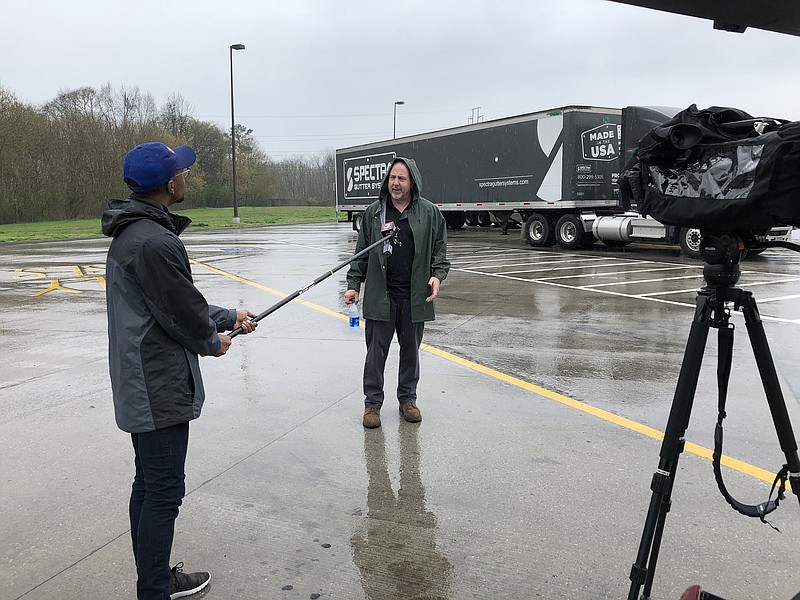It's long been understood that viewers invite TV anchors and reporters into their homes when they turn on the news, but the coronavirus outbreak has flipped the script a little bit.
With more and more businesses asking people to work from home, TV reporters around the country, and here in Chattanooga, find themselves doing interviews, editing stories and doing live reports from their home offices or living rooms.
WRCB-TV 3 News Director Callie Starnes said the station has invested in new equipment such as tripods and lighting systems for phones, and Chief Photographer Lee Broome has created boom poles for microphones for reporters to keep them at a safe distance from interviewees.
"This is what I call an aggressive phase 1," she said
She said the station did some testing last week so that the reporters, producers and editors could be comfortable with going live on Monday. Phase 2 will involve adding additional equipment for digital editing at home that would allow reporters and editors to access the archives for file video and information.
The COVID-19 pandemic is forcing everyone to change and adapt, and WDEF-TV 12 News Director Dutch Terry said how his team works is no different.
"Things change every day, and there are so many technologies out there that allow us ways to manipulate our signals and how we get them. We just have to figure out a new thing each day."
He said the team figured out how to use the audio/video conferencing app Skype to have a live, on-air, three-way interaction with the anchor in the studio, and a reporter and subject each in their individual homes.
"Our reporters are still leaving the building, and they are trying to get to every report that we can, but there are some things that can be done from home."
He pointed out the TV newscasts are heavily reliant on images, primarily video images. He said that viewers today are accustomed to seeing reports that merge high-tech, high-quality images with images "that are almost all the way down to Max Headroom" quality, referring to the old computer-generated character from the mid-'80s.
He said the biggest challenge is adapting with the rapidly changing scenario, "but we have some really creative people."
Efforts to reach WTVC-TV 9 were unsuccessful.
Starnes said WRCB has created a policy of having just one anchor in the studio during a newscast and has gone to such lengths as having a portable toilet placed in the station's parking lot so that reporters and photographers working in the field don't have to come into the building, which is now closed to all but a few workers at a time.
She added that she is now taking the temperature of staff members who do come into the building.
"That's not something I thought I would ever be doing," she said.
She added that because of the unusualness of the situation caused by the virus, she has been in constant contact with news directors around the country who are sharing information about how they are handling things. She said normally her peers tend to hold things close to the vest, but not now.
"It's a competitive thing, but now there is such a focus on journalists' safety a lot of news directors are sharing ideas and ways to make this successful quickly. One thing we're talking about is the mental health of the journalists. The news is coming at us constantly, and we are not able to turn that off. It's important to care for our people and stay in touch and be mindful of that."
Contact Barry Courter at bourter@timesfreepress.com or 423-757-6354.
